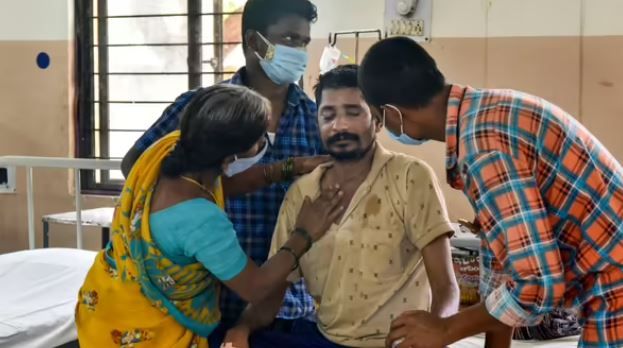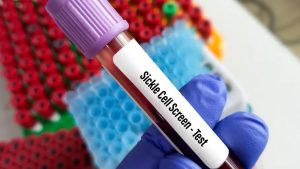India is currently battling the third wave of COVID-19, believed to be fuelled by the highly contagious omicron variant of the coronavirus.
As the fight continues, the news of a Mumbai patient diagnosed with Black Fungus has stirred new worries. The Wockhardt Hospital in the city registered the first such case in the ongoing COVID wave, of a 70-year-old man diagnosed with the lethal fungal infection. He had tested positive for COVID on Jan 5 and started showing black fungus symptoms on January 12.
The patient is now stable and taking intravenous antifungals, Dr Honey Savla, Internal Medicine, Wockhardt Hospital, Mumbai Central, said, reported Hindustan Times.
Also Read: After black fungus, debilitating avascular necrosis stalks COVID patients
What is black fungus?
Mucormycosis, commonly known as the Black Fungus is a very rare infection. It is caused by exposure to mucor mould, which is commonly found in soil, plants, manure, and decaying fruits and vegetables. According to experts, it is ubiquitous and found in soil and air and at times even in the nose and mucus of healthy people.
It causes complications when an ill patient inhales these, which then spreads into the sinus cavities, lungs and chest cavities. The average fatality rate is 54%, according to the CDC. However, if the disease is diagnosed timely, it can be treated well.
During the second COVID wave in India in 2021, the central government in India had asked states to notify Black Fungus infection as an epidemic, as thousands of people got infected.
Also Read: Cricket ball-sized black fungus removed from patient’s brain in Patna
Is there reason to worry now?
According to doctors, it is still too early to tell if the fungal infection will make a comeback.
“We know from the second wave that the risk factors for mucormycosis are prolonged hospitalizations, need of prolonged corticosteroids in those with moderate to severe covid and indiscriminate use of steroids in those with mild Covid. Though it is still too early to know if we will see large number of mucormycosis patients in the third wave, we expect it to be much lower because all the above risk factors are much lower with Omicron. Responsible use of steroids, antibiotics and good sugar control in those with diabetes is going to be key in averting this deadly disease going forward,” Dr Trupti Gilada, Infectious Disease specialist, Masina Hospital, Mumbai, told Hindustan Times.
Also Read: Diabetes and black fungus: Is there a connection?
“No, there is no rise in the cases of mucormycosis among patients suffering from Omicron. Since most of the patients have mild to moderate symptoms and do not require immunomodulators such as steroids or high flow oxygen support during their treatment, the incidence is low,” Dr Charu Dutt Arora Consultant Physician and Infectious Disease Specialist Head, Ameri Health, Asian Hospital, Faridabad, said, according to the HT report.






